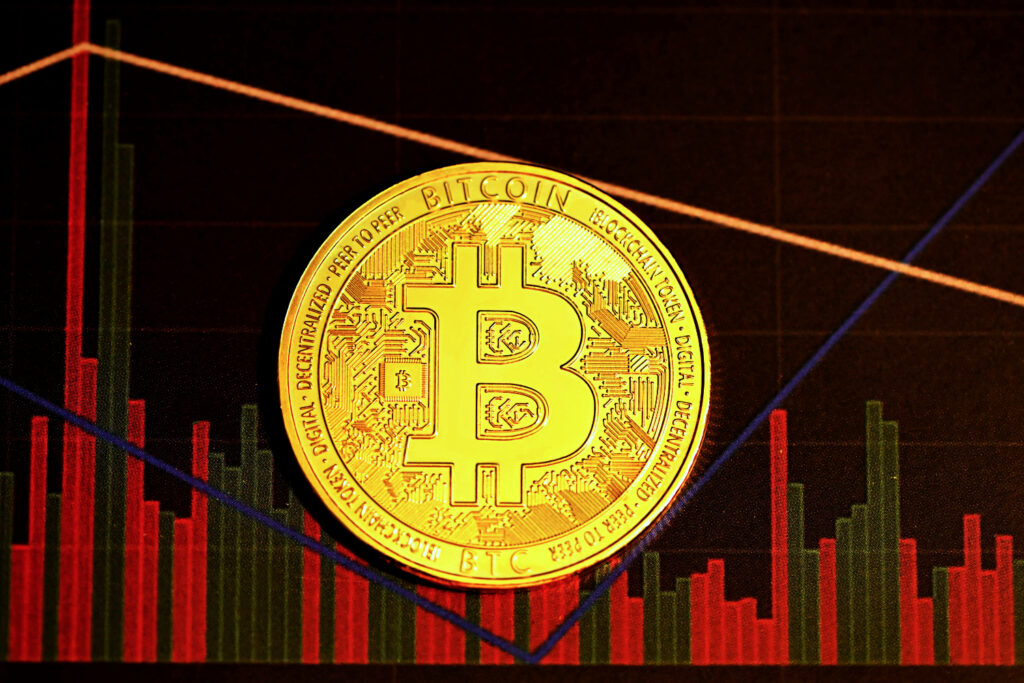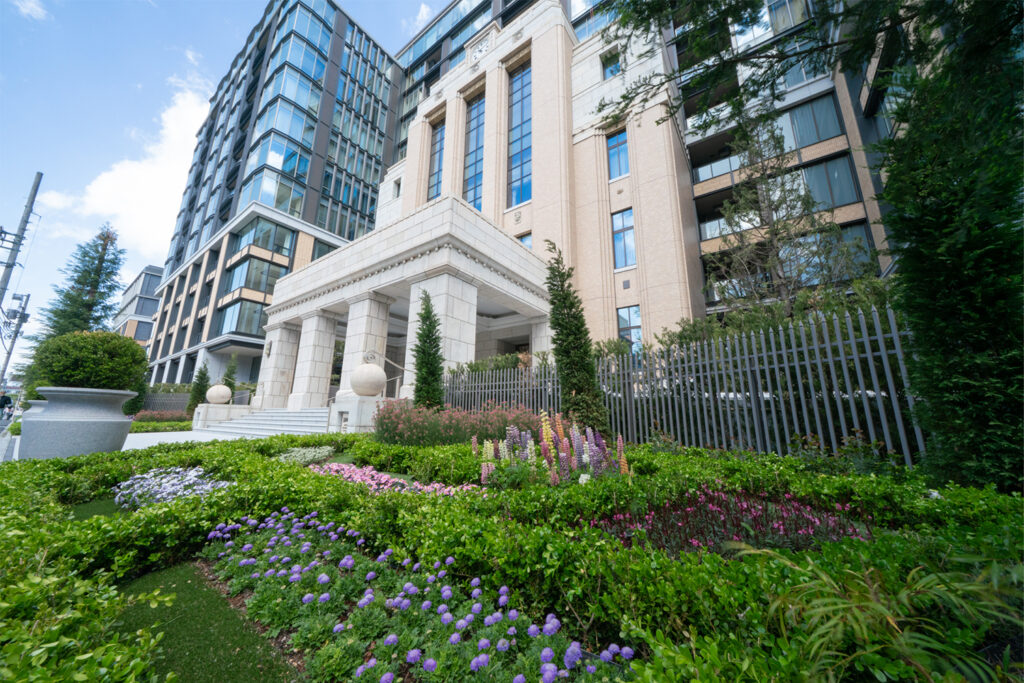
Japan holds a unique position in the global cryptocurrency story. From hosting the world’s largest Bitcoin exchange to creating the first comprehensive digital currency regulations, Japan has been at the center of crypto’s development for over a decade. Today, as the digital currency market matures, successful crypto investors are discovering new opportunities to diversify their wealth through Japan’s stable real estate market.
The Satoshi Nakamoto Mystery: A Japanese Connection?
When Bitcoin’s anonymous creator published the groundbreaking white paper in 2008, they chose a distinctly Japanese name: Satoshi Nakamoto. In Japanese, “Satoshi” can mean “clear thinking” or “wise,” while “Nakamoto” can translate to “central origin.” These meanings seem perfectly suited for someone creating the foundation of decentralized digital money.
The Japanese connection runs deeper than just the name. Bitcoin’s design philosophy, emphasizing precision, efficiency, and elegant simplicity, reflects values deeply embedded in Japanese culture. The mysterious creator’s attention to detail mirrors the Japanese concept of “monozukuri,” the art of making things with pride and dedication.
Despite years of investigation by journalists and crypto enthusiasts worldwide, Satoshi Nakamoto’s true identity remains unknown. Several clues suggest the creator might not actually be Japanese. The writing style doesn’t match typical Japanese English patterns, and development timestamps suggest someone working in Western time zones. Most experts believe Satoshi Nakamoto was likely a pseudonym used by non-Japanese developers. Whether intentional or coincidental, this Japanese name gave Japan a special place in cryptocurrency history from day one. It helped establish Japan as a natural home for Bitcoin and other digital currencies, setting the stage for the country’s leadership role in crypto development.
The Early Years: Embracing Digital Innovation

Bitcoin gained traction in Japan faster than almost anywhere else. By 2010, Japanese tech enthusiasts were mining Bitcoin and trading on early exchanges. The country’s advanced technology infrastructure and population comfortable with digital payments created ideal conditions for cryptocurrency adoption. Japanese developers quickly saw Bitcoin’s potential and created some of the first user-friendly wallet software and trading platforms. This early innovation helped Japan become a global center for cryptocurrency development, attracting international attention and investment.
The Mt. Gox Era
In 2010, a small Tokyo-based company called Mt. Gox transformed from a trading card exchange into the world’s largest Bitcoin exchange. By 2013, Mt. Gox was handling roughly 70% of all Bitcoin transactions globally, making Tokyo the unofficial capital of the cryptocurrency world. Mt. Gox’s success attracted international traders and investors to Japan. The exchange processed millions of dollars in Bitcoin trades daily, generating significant media attention and legitimizing cryptocurrency in the eyes of many skeptics. For a brief moment, it seemed like Japan would naturally lead the global transition to digital money.
The Great Collapse and Lessons Learned
In February 2014, Mt. Gox suddenly stopped all trading and filed for bankruptcy. The exchange had lost 850,000 bitcoins worth approximately $450 million at the time. Poor security practices, possible insider theft, and mismanagement had destroyed what seemed like a cryptocurrency success story. The collapse could have ended Japan’s relationship with digital currencies. Instead, it provided valuable lessons that shaped the world’s most comprehensive cryptocurrency regulations.
The Japanese government studied what went wrong and concluded that proper oversight, not outright bans, was the solution to protecting investors while preserving innovation. This response demonstrated Japan’s pragmatic approach to new technology. Rather than panic or impose harsh restrictions, authorities used the crisis as a learning opportunity. This measured response would later make Japan a model for other countries developing their own cryptocurrency policies.
Regulatory Revolution: Leading the World

Japan became the first major economy to recognize Bitcoin as a legal payment method when it passed the Virtual Currency Act in 2017. This groundbreaking legislation created a comprehensive framework that protected investors while allowing continued innovation in digital currencies. The law required cryptocurrency exchanges to register with the Financial Services Agency and follow strict rules about security, customer fund protection, and operational transparency. These regulations were thorough but not restrictive. The government wanted to prevent another Mt. Gox disaster while still encouraging technological development.
The Virtual Currency Act established clear rules that reduced uncertainty for both investors and businesses. The law also created the Japan Virtual Currency Exchange Association (JVCEA) that worked with government authorities to maintain high standards. This collaborative approach between government and industry became a model copied by other countries. Even with strong regulations, challenges continued. In 2018, hackers stole $500 million worth of cryptocurrency from the Coincheck exchange. Rather than abandon their supportive approach, Japanese authorities used this incident to strengthen regulations further, including mandatory cold storage for customer funds and enhanced security audits.
The Modern Investment Landscape
Several factors make Japan an excellent environment for cryptocurrency investment today. The population is comfortable with technology and digital payments, creating natural demand for crypto services. The government provides clear, predictable rules that reduce regulatory uncertainty. Major Japanese banks and financial institutions are actively developing cryptocurrency services rather than fighting them. Companies like SoftBank have invested billions in blockchain technology companies. This institutional support creates a stable foundation for the cryptocurrency market to grow.
Understanding Japan’s Cryptocurrency Tax System

Japan’s approach to cryptocurrency taxation is complex and requires careful planning for serious investors. The current system treats crypto gains as miscellaneous income, taxed at progressive rates that can reach 55% for high earners including national and local taxes.
Every cryptocurrency transaction is considered a taxable event in Japan. This includes trading cryptocurrencies, using crypto to purchase goods, and converting digital currencies back to yen. Each transaction requires careful record-keeping to calculate gains or losses. The progressive tax rates start at 5% for small gains but quickly escalate. Income over 18 million yen faces the maximum rate of 45% for national tax, plus additional local taxes that can push the total burden above 55%. This makes Japan one of the highest-taxing countries for cryptocurrency gains globally.
Japanese tax authorities require detailed documentation of all cryptocurrency transactions. Many successful crypto investors work with tax professionals who specialize in digital currency reporting to ensure compliance while identifying legal strategies to minimize tax burdens.
The Japanese government recognizes that the current tax system may discourage investment and innovation. Recent discussions in the Diet have focused on treating crypto gains more like traditional investment income, which would qualify for lower capital gains tax rates. Proposed changes could reduce tax rates to 20% for long-term holdings, though these reforms are still under discussion.
Growing Institutional Adoption
Japanese financial firms have also launched cryptocurrency investment products including trusts and index funds, making digital assets more accessible to mainstream investors. Mizuho and MUFG have invested in cryptocurrency exchanges and developed blockchain-based payment systems. This institutional support provides stability and legitimacy that attracts more conservative investors.
The Future of Crypto in Japan
Japan continues investing heavily in blockchain and cryptocurrency research. Major corporations are creating payment systems and financial services based on digital currencies. The government supports these efforts through favorable policies. The planned digital yen represents one of the most significant developments in Japan’s cryptocurrency future. Unlike current cryptocurrencies, a digital yen would have full government backing while maintaining digital convenience. This could revolutionize how Japanese people use money and potentially increase adoption of both government and private digital currencies.
Japan’s regulatory framework continues influencing other countries. As more nations develop cryptocurrency policies, many look to Japan’s balanced approach as a model for protecting consumers while encouraging innovation. This international influence helps cement Japan’s position as a global leader in cryptocurrency development.
Smart Diversification: From Crypto Success to Real Estate Wealth

Many cryptocurrency investors who have built substantial wealth face an important question: how to protect and grow those gains over the long term. While digital currencies can produce impressive returns, they remain extremely volatile and unpredictable. Smart investors understand that diversification is essential for preserving wealth. After achieving success in cryptocurrency markets, many are looking for stable, income-producing assets that can provide steady returns regardless of crypto market conditions.
Why Tokyo Real Estate Appeals to Crypto Investors
Tokyo’s real estate market offers an ideal complement to cryptocurrency investments. Property provides several advantages that digital currencies cannot match: physical assets with intrinsic value, steady rental income, and possible protection against inflation. For crypto investors who have experienced the stress of constant price monitoring and extreme volatility, real estate offers peace of mind. Property values change slowly, giving investors time to make thoughtful decisions. Monthly rental payments provide steady income that doesn’t depend on market timing or trading skills.
Tokyo specifically appeals to international investors because of its political stability, strong legal system, and continued economic growth. The city’s infrastructure improvements and upcoming development projects provide additional growth potential beyond what individual properties might achieve.
The Housing Japan Solution
Housing Japan specializes in helping successful investors transition from crypto gains into Tokyo’s luxury real estate market. The company understands the unique needs of digital currency investors who want to diversify their portfolios with high-quality property investments.
Their expertise covers everything from identifying prime locations with strong rental potential to managing the complex process of international property purchases. For crypto investors ready to secure some profits in tangible assets, Housing Japan provides the knowledge and support needed to succeed in Tokyo’s competitive real estate market. The company offers expedited property search services for clients looking to diversify substantial cryptocurrency gains and provides guidance on the legal and tax implications of using crypto gains for real estate purchases.
Investment Strategy and Risk Management
Successful cryptocurrency investors often develop strong skills in recognizing market patterns and managing risk. These same skills prove valuable when investing in real estate, though the timescales are quite different. The most successful investors combine different types of assets to balance risk and return potential. Cryptocurrency can provide high growth potential, while real estate offers stability and income. This combination helps smooth out portfolio volatility while maintaining upside potential.
Real estate investment in Tokyo provides opportunities to build wealth that can benefit multiple generations. Unlike cryptocurrency, which remains relatively new, property ownership has proven its value as a wealth preservation strategy across centuries of economic cycles. The low correlation between cryptocurrency and real estate markets means that poor performance in one asset class doesn’t necessarily affect the other. This independence helps smooth portfolio volatility and provides more consistent returns over time.
Conclusion: Japan’s Continuing Crypto Evolution

Japan’s cryptocurrency journey reflects the country’s approach to technological innovation – embrace new ideas, learn from mistakes, and build systems that benefit everyone. From the mystery of Satoshi Nakamoto’s identity to becoming a global leader in digital currency regulation, Japan has consistently been at the forefront of the crypto revolution. The country’s balanced regulatory approach has created one of the world’s most mature and stable cryptocurrency markets. Strong consumer protections, institutional adoption, and government support provide a foundation for continued growth and innovation.
For investors, Japan offers unique opportunities to participate in the evolving digital economy while maintaining access to traditional assets like real estate. This combination allows for sophisticated portfolio strategies that balance cryptocurrency growth potential with property investment stability.
Whether you’re interested in cryptocurrency innovation or ready to secure gains through Tokyo property investment, Japan offers opportunities for building substantial wealth. The key is understanding both potential and risks, then making informed decisions that align with your long-term financial goals. Japan’s unique position at the intersection of traditional finance and digital innovation makes it ideal for investors seeking both cutting-edge opportunities and time-tested wealth-building strategies. As the cryptocurrency market continues maturing, this combination becomes increasingly valuable for sophisticated investors.
Q&A: Cryptocurrency Investment in Japan
Who is Satoshi Nakamoto and are they Japanese? Satoshi Nakamoto is the anonymous creator of Bitcoin who published the original white paper in 2008. Despite the Japanese name, which means “clear thinking” and “central origin,” the true identity remains unknown. Most experts believe Satoshi Nakamoto was likely a pseudonym used by non-Japanese developers, based on writing patterns and development timestamps that suggest Western origins.
When did Japan first regulate cryptocurrency? Japan became the first major economy to regulate cryptocurrency in 2017 with the Virtual Currency Act. This groundbreaking legislation recognized Bitcoin as legal tender and required exchanges to register with the Financial Services Agency. The law established comprehensive consumer protections while allowing continued innovation in digital currencies.
What happened to Mt. Gox and how did it affect Japan’s crypto market? Mt. Gox was the world’s largest Bitcoin exchange, handling 70% of global transactions until it collapsed in 2014 after losing 850,000 bitcoins worth $450 million. Rather than ending Japan’s crypto involvement, this disaster led to the world’s first comprehensive cryptocurrency regulations and made Japanese exchanges among the safest globally.
How much tax do you pay on cryptocurrency gains in Japan? Japan taxes cryptocurrency gains as miscellaneous income at progressive rates up to 55% for high earners. Every crypto transaction is taxable, including trading between different cryptocurrencies. The government is considering reforms that could reduce rates to 20% for long-term holdings, similar to capital gains tax treatment.
Can foreigners legally buy cryptocurrency in Japan? Yes, foreigners with valid residence status can legally buy cryptocurrency in Japan through licensed exchanges like Bitflyer and Coincheck. Japan welcomes international participation in its regulated cryptocurrency market, providing the same legal protections and trading opportunities available to Japanese citizens.
What makes Tokyo real estate attractive for crypto investors? Tokyo real estate provides stability and steady income that complements cryptocurrency volatility. Properties generate monthly rental income, appreciate gradually over time, and represent physical assets with intrinsic value. For crypto investors seeking to diversify gains, Tokyo offers political stability, strong legal protections, and continued economic growth.











